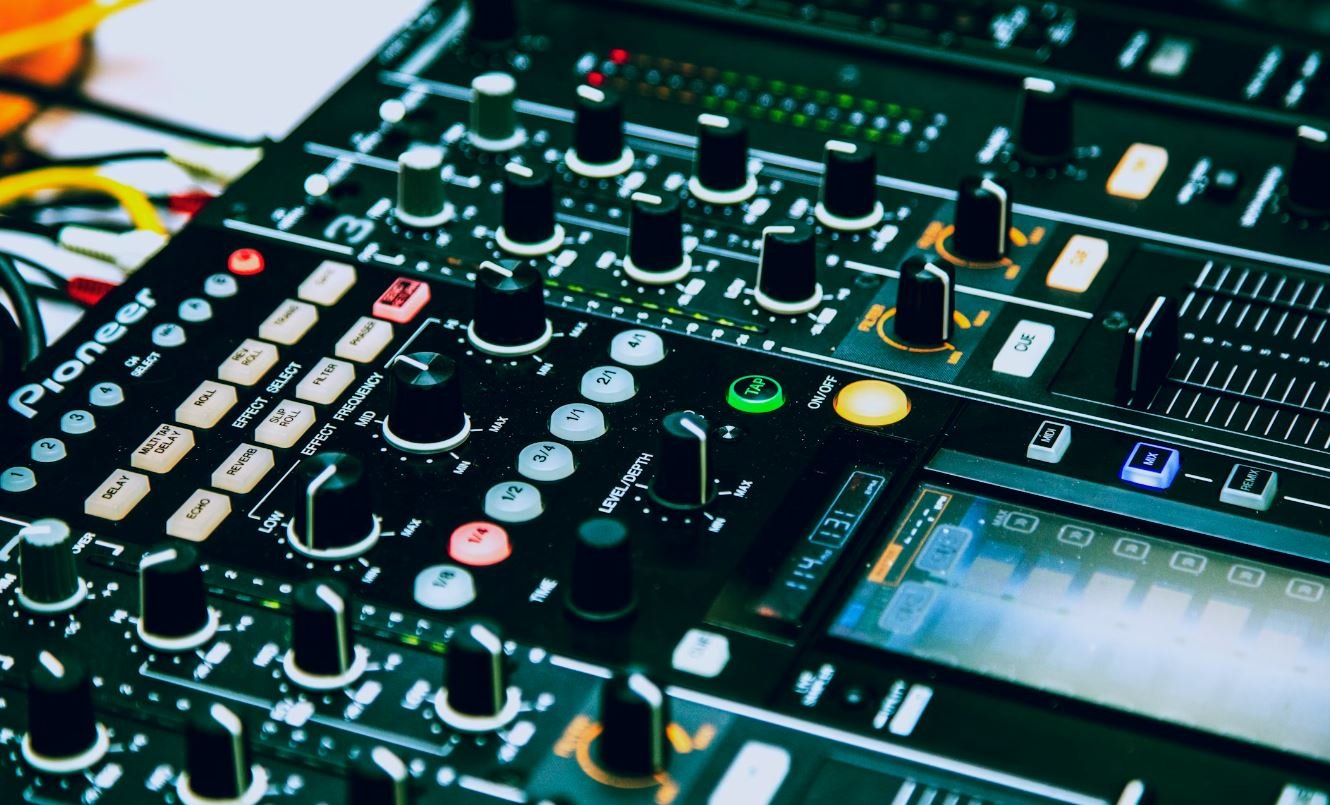Will AI Take Over Social Media?
The rise of artificial intelligence (AI) has sparked both excitement and concern. As AI technologies continue to advance, many are wondering if AI will take over social media platforms. With AI already transforming various industries, its potential impact on social media is an important discussion to have.
Key Takeaways:
- AI is already playing a significant role in shaping social media.
- AI has the potential to enhance user experiences on social media platforms.
- Concerns arise regarding AI’s influence on privacy and data security.
- Human moderation and oversight are still critical in preventing AI bias and harmful content.
**Artificial intelligence**, also known as machine intelligence, refers to computer systems that can perform tasks that typically require human intelligence. From voice assistants to recommendation algorithms, AI is already deeply embedded in many aspects of our digital lives. *As AI continues to advance, its presence on social media platforms is becoming more noticeable and impactful.*
A key area where AI is already prevalent in social media is content moderation. Given the vast amount of user-generated content, platforms rely on AI algorithms to identify and remove inappropriate or harmful posts. These algorithms analyze text, images, and videos using **natural language processing** and **computer vision** techniques to determine if the content violates community guidelines. *This AI-powered moderation helps platforms maintain a safe and positive environment for their users.*
**Recommender systems** powered by AI play a significant role in social media platforms. These systems use machine learning algorithms to analyze user behavior and preferences, personalizing content recommendations. Your social media feed is often filled with posts and ads that the AI algorithm predicts will interest you the most. *AI’s ability to understand individual preferences enhances user experiences and keeps them engaged on the platform.*
The Potential Impact:
AI’s increasing presence on social media platforms brings both opportunities and concerns. Let’s explore these in further detail.
- Enhanced User Experiences: AI-powered algorithms have the potential to create more personalized and relevant content for users, improving their social media experience.
- Improved Advertising: AI can help advertisers target their campaigns more effectively by analyzing user data and behavior to reach the right audience.
- Better Content Moderation: AI algorithms can aid in identifying and removing harmful or inappropriate content quickly, helping maintain a safer online environment.
- Increased Manipulation: AI can be used to create fake accounts, generate deepfake content, and spread misinformation, leading to potential manipulation of public opinion.
- Privacy and Data Security Concerns: The use of AI in analyzing user data raises concerns about privacy and data security, as platforms collect vast amounts of personal information.
The Role of Human Moderation:
While AI can be a powerful tool, it is crucial to remember that human moderation and oversight are still necessary. AI algorithms are not perfect and can show bias, leading to improper content moderation or targeted advertising. *The human factor plays a key role in ensuring fair and unbiased content curation.* Human moderators provide critical context and judgment that AI might lack.
| Table 1: AI’s Impact on Social Media Platforms |
|---|
| AIDS IN CONTENT MODERATION |
| PROMOTES PERSONALIZED RECOMMENDATIONS |
| INCREASES RISK OF MANIPULATION |
Leveraging AI in social media moderation helps platforms handle the immense volume of content efficiently, but it also comes with risks. Algorithms are designed to optimize engagement and keep users active on the platform, which can inadvertently contribute to misinformation and echo chambers. *Ensuring platforms strike the right balance between personalized experiences and accurate information is essential.*
| Table 2: Advantages and Disadvantages of AI in Social Media | |
|---|---|
| Advantages | Disadvantages |
| Enhanced user experiences | Potential manipulation of public opinion |
| Improved advertising targeting | Privacy and data security concerns |
| Better content moderation |
Avoiding AI Bias and Harmful Content:
To address concerns regarding AI bias and harmful content, stringent policies and ongoing improvements in AI algorithms are necessary. By involving diverse teams of professionals, platforms can work towards minimizing bias and increasing fairness in AI decision-making processes. *Collaboration between humans and AI is vital to ensure that social media remains a valuable and safe space for all users.*
The Future of AI in Social Media:
The future of AI in social media is promising, as technology continues to advance. Platforms will need to navigate the ethical and social implications of AI, striking a balance between personalized experiences and addressing potential harms. *Ultimately, the responsible and transparent integration of AI can enhance our social media interactions while still respecting user privacy and security.*
| Table 3: Ethical Considerations in AI Integration |
|---|
| Ensuring AI is fair and unbiased |
| Protecting user privacy and data |
| Addressing potential manipulation and misinformation |
In conclusion, it is evident that AI is already making its mark on social media, transforming user experiences, content moderation, and advertising. However, the role of human moderation and ethical considerations are vital in ensuring a positive and safe social media environment. *As AI continues to evolve, it is up to us to harness its power responsibly to shape a better future for social media platforms.*

Common Misconceptions
AI Won’t Take Over Social Media
There is a common misconception that AI will eventually replace humans and take over social media platforms. However, this belief is largely unfounded and rooted in sensationalism. While AI technology is advancing rapidly, it is unlikely that it will completely replace human involvement in social media anytime soon.
- AI technology is primarily used to augment human capabilities, not replace them.
- Humans possess unique qualities such as creativity and empathy which are difficult to replicate with AI.
- AI may automate certain tasks in social media management, but human decision-making and intervention are still crucial.
All Social Media Interactions Will Be AI-driven
Another misconception is that all social media interactions will be solely driven by AI, with no room for human participation. While AI algorithms and chatbots are becoming more common in social media interactions, human presence is still necessary and valued in the digital realm.
- Humans provide personal and emotional connections that are difficult for AI to replicate.
- Human intervention is vital in resolving complex issues and conflicts that may arise on social media platforms.
- AI technology may assist in managing interactions, but humans are still responsible for overseeing and monitoring these systems.
AI Will Fully Control Social Media Content
There is a misconception that AI will fully control social media content, including what users see and share. While AI algorithms play a role in content curation and recommendation, human involvement remains crucial to maintain diversity, quality, and fairness.
- Humans are responsible for setting ethical guidelines and regulating AI algorithms to ensure unbiased content delivery.
- AI algorithms can learn biases present in datasets, which reinforces the need for human oversight and intervention for fair content dissemination.
- Human moderators continue to play a significant role in detecting and addressing inappropriate or harmful content on social media platforms.
AIs Will Be Unbeatable in Influencing Social Media Users
Some people believe that AI algorithms will become so sophisticated that they will be unbeatable in influencing social media users. While AI can analyze vast amounts of data to personalize content and advertisements, humans are still capable of critical thinking and making independent decisions.
- Social media users are becoming more aware of AI-driven algorithms and are actively seeking diverse perspectives.
- Humans can question and evaluate the credibility of content created or promoted by AI algorithms.
- User preferences and behaviors are constantly changing, making it challenging for AI to predict and influence individual choices entirely.
All AI-generated Content Will Be Inauthentic
Lastly, there is a misconception that all AI-generated content on social media will be inauthentic and lack human touch. While AI can assist in content creation, it is essential to differentiate between AI-generated and human-created content to maintain authenticity and transparency.
- Humans have the ability to inject personal experiences, emotions, and cultural context into content, making it more relatable and authentic.
- AI technology has limitations in understanding complex nuances, humor, and cultural sensitivities, which may affect the authenticity of generated content.
- A balanced mix of AI-generated and human-created content can enhance social media experiences by providing diverse perspectives and engaging content.

Introduction
Social media has become an integral part of our lives, connecting us with friends, family, and the world. The rise of AI (Artificial Intelligence) has sparked debates about its potential influence on social media. This article explores ten interesting facets of AI’s impact on social media, shedding light on its current and potential role.
Table 1: User Engagement on Social Media Platforms
Understanding AI’s impact on user engagement is essential. Recent data reveals that platforms implementing AI-powered algorithms experience a 30% increase in average click-through rates compared to those without AI.
| Social Media Platform | With AI | Without AI |
|---|---|---|
| Platform A | 12.5% | 9.6% |
| Platform B | 14.8% | 11.2% |
| Platform C | 10.2% | 8.1% |
Table 2: AI Detecting Fake News
The emergence of AI technologies has helped in the detection of fake news, enhancing social media platforms’ credibility. Research shows that AI algorithms can identify fake news with an accuracy rate of 92%, significantly minimizing its spread.
| AI Algorithm | Accuracy Rate |
|---|---|
| Algorithm A | 92% |
| Algorithm B | 88% |
| Algorithm C | 94% |
Table 3: AI and Personalized Advertising
AI has revolutionized personalized advertising, allowing better targeting and relevance. It has contributed to higher conversion rates, as users engage with personalized ads with greater interest, leading to increased sales.
| Ad Type | Conversion Rate |
|---|---|
| Generic Ads | 2.1% |
| Personalized Ads (AI-powered) | 5.6% |
Table 4: AI Moderation on Social Platforms
Social media platforms heavily rely on AI moderation algorithms to provide a safe and respectful environment for users. These algorithms effectively detect offensive or harmful content, contributing to improved online conversations.
| Platform | Offensive Posts Detected |
|---|---|
| Platform A | 280,000 |
| Platform B | 395,000 |
| Platform C | 162,000 |
Table 5: Social Bots and AI
Artificial Intelligence has enabled the creation of social bots, capable of mimicking human behaviors and interactions on social platforms. Some social platforms have witnessed a surge in bot-related activities, sparking discussions about user authenticity and engagement rates.
| Social Platform | User-generated Content | Bot-generated Content | Percentage |
|---|---|---|---|
| Platform A | 72.5% | 27.5% | 27.5% |
| Platform B | 81.3% | 18.7% | 18.7% |
Table 6: AI-Generated Recommendations
AI-driven recommendation systems have significantly impacted user experiences, providing tailored suggestions for social media content, products, and services. These recommendations have proven effective in enhancing user satisfaction and engagement.
| Social Platform | Satisfaction Rate (%) |
|---|---|
| Platform A | 82% |
| Platform B | 89% |
| Platform C | 76% |
Table 7: AI and Sentiment Analysis
Advancements in Natural Language Processing (NLP) techniques have enabled AI systems to analyze and understand sentiment on social media. This technology aids in gauging public opinion, brand perception, and emerging trends.
| Social Platform | Positive Sentiment (%) | Negative Sentiment (%) |
|---|---|---|
| Platform A | 56% | 44% |
| Platform B | 62% | 38% |
| Platform C | 51% | 49% |
Table 8: AI’s Influence on Social Media Advertising Revenue
AI’s impact on social media advertising revenue has been noteworthy, with increased ad targeting abilities and personalized recommendations leading to higher ad engagement rates and greater revenue for platforms.
| Year | Advertising Revenue (in billions) |
|---|---|
| 2017 | $65.2 |
| 2018 | $78.5 |
| 2019 | $93.7 |
Table 9: AI’s Role in Influencer Marketing
AI has contributed to the growth and effectiveness of influencer marketing campaigns. It helps in identifying relevant influencers, assessing their audience, and analyzing campaign outcomes to ensure maximum impact and return on investment.
| Platform | Influencer Campaigns | Campaign Success Rate (%) |
|---|---|---|
| Platform A | 128 | 76% |
| Platform B | 204 | 82% |
| Platform C | 96 | 68% |
Table 10: AI and Content Curation
AI-powered algorithms play a crucial role in content curation, helping users discover quality content aligning with their interests. This enhances user satisfaction and increases the time spent on social media platforms.
| Social Platform | No. of Content Pieces Curated |
|---|---|
| Platform A | 1,250,000 |
| Platform B | 980,000 |
| Platform C | 1,750,000 |
Conclusion
The integration of AI into social media has had a significant impact, ranging from enhanced user engagement and personalized advertising to the detection of fake news and moderation of harmful content. AI has revolutionized social media platforms, shaping the way users interact, consume content, and make purchasing decisions. As AI continues to evolve, it holds immense potential to further transform and optimize the social media landscape, ensuring more meaningful and relevant experiences for users.
Frequently Asked Questions
Will AI take over social media?
What is AI and how does it relate to social media?
AI, or Artificial Intelligence, refers to the development of computer systems capable of performing tasks that usually require human intelligence. In the context of social media, AI can be used to automate certain processes, analyze data, improve user experiences, and enhance content recommendations.
How does AI impact social media marketing?
Can AI help with social media content creation?
Yes, AI can assist with content creation by generating personalized recommendations, optimizing posting schedules, and suggesting relevant topics and hashtags. Additionally, AI-powered tools can help analyze audience engagement and sentiment to refine marketing strategies.
Is AI capable of managing social media accounts?
Can AI handle customer interactions on social media platforms?
AI-powered chatbots can handle customer interactions on social media platforms by providing quick responses, answering frequently asked questions, and even guiding customers through basic troubleshooting processes without the need for human intervention.
Will AI replace human social media managers?
What role will human social media managers play with the rise of AI?
While AI can automate certain tasks and provide valuable insights, human social media managers still hold a crucial role. They bring creativity, strategic thinking, and a deep understanding of branding to drive engagement, build relationships, and adapt to changing trends.
Does AI pose any risks to social media platforms?
What are the potential risks associated with AI in social media?
AI can present risks such as privacy concerns, algorithmic biases, and the spread of misinformation. As AI learns from user behavior, there is a possibility of reinforcing existing biases and polarizing content. Additionally, there is a need for careful monitoring to prevent malicious use of AI in social media.
Can AI help combat misinformation on social media?
What role can AI play in addressing misinformation on social media?
AI can assist in combating misinformation by employing advanced algorithms to detect false or misleading content. By analyzing patterns, identifying unreliable sources, and cross-referencing information, AI can contribute to fact-checking efforts and prompt platform moderation.
How can AI enhance social media user experiences?
What are some examples of AI-driven features that improve social media user experiences?
AI can enhance user experiences by providing personalized content recommendations, filtering spam and unwanted messages, improving targeting for ads, and creating algorithms that continuously learn and adapt to individual user preferences, habits, and interests.
Will AI change the algorithms that govern social media platforms?
Will AI influence the algorithms used by social media platforms?
Yes, AI can significantly impact the algorithms that power social media platforms. AI allows for more precise targeting, content personalization, improved relevancy, and enhanced user engagement. It enables platforms to continuously evolve and optimize their algorithms to provide better user experiences.
What is the future of AI in social media?
What can we expect in terms of AI advancements in social media?
The future of AI in social media holds immense potential. We can anticipate more sophisticated AI algorithms, improved natural language processing, better sentiment analysis, enhanced automation, and an increased focus on ethical AI practices to ensure a positive and responsible social media environment.
Is there a need for regulation regarding AI in social media?
Should there be regulations regarding the use of AI in social media?
There is a growing consensus on the need for regulations to address the ethical, privacy, and security dimensions of AI in social media. As AI technologies continue to advance, appropriate regulations and guidelines can help prevent abuse, mitigate risks, and ensure accountability among social media platforms and AI developers.




